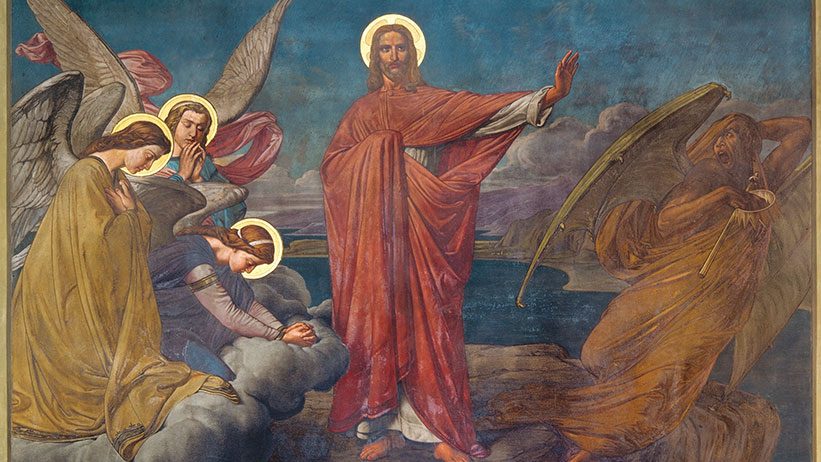The Purpose of our Sacrifices
First Sunday of Lent (C)
Why do we give things up for Lent? Some people scoff at the idea. I’ve noticed a trend in recent years of people suggesting instead of “giving things up” for Lent you should try and add things to your life, like prayer or helping those in need. Of course, this is not a new idea. The Church has always taught that our Lenten fasting should be accompanied by prayer and almsgiving.
But these things also involve giving something up. When we fast we give up food. Or we might choose to do penance by giving up other material comforts. But spending time in prayer is also a sacrifice. You are giving up time you might spend doing something else. To help the poor means sacrificing money or other material goods you could have used yourself. Prayer, fasting and almsgiving are all forms of sacrifice.
Sacrifice lies at the heart of all true religions. And to be a worthy sacrifice, it has to cost you something real. God never tells his people, “Give me your leftovers. Sacrifice the things you don’t really need anyway.” No. He says, “Give me your first fruits. Give me the unblemished lamb.” God wants our best. We don’t sacrifice lambs anymore, but that’s because Jesus wants something more from us. He says, “Give me yourself” Offering a lamb every now and then in the Temple is easy by comparison.
Why would God want our sacrifices? It’s not for His good. He has everything He needs. So it must be for our good. I can think of a few reasons.
First, giving things back to God reminds us that everything we have comes from God to begin with. Giving the very best of what we have been given (including the best of ourselves) back to God is a way of saying, “Thank you.” Gratitude is just as much at the heart of true religion as is sacrifice. In fact, if you haven’t decided what to do for Lent yet, here’s a suggestion. Why not offer a sacrifice of thanksgiving. Tell God “thank you” for ten things each day.
Another reason we offer sacrifice is to express the interior sacrifice of the spirit. When we give up possessions or comfort or time it symbolizes that we are giving up part of ourselves — our selfishness, our ego, our pride.
Jesus shows us what this interior sacrifice looks like during his forty days in the desert when he was tempted by the devil. He was hungry from fasting. The devil tempted him to turn a stone into bread. He could have done it. It was within his power. But it was not His Father’s will. So he denied his hunger and said, “Man does not live on bread alone but on every word that comes from the mouth of God.”
The devil tempted him to prove his divinity by throwing himself from the highest tower. This is what Jesus wanted, after all; for people to believe in him. But it was not his Father’s will that people believe in him in that way. So he said, “You shall not tempt the Lord your God.”
The devil tempted him with all the kingdoms of the earth if only Christ would bow down and worship him. Jesus came to inaugurate God’s kingdom, didn’t he? But not in this way, not by worshiping a false God. So he denied this temptation and said, “You shall worship the Lord your God alone.”
The things the devil tempts us with are always going to be things we want and things that appear good. Saying no to something you want is a sacrifice, and you can only do it if you know you are saying yes to something better — if you can say like Jesus, “Not my will, but Your will be done.”
There is a third reason we offer sacrifices and that is to unite us with the one eternal sacrifice of Christ. Christ gave Himself up entirely for us and when we freely give up something of ourselves for the love of Christ, we become more like Him.
God is love, and love is self-gift. There is a reason why we use the same word to describe both love and sacrifice, and that word is “passion.” Jesus shows us how these two things are united on the cross.
All the sacrifices we make, even the small ones, if done in the spirit of love, are a participation in the sacrifice of Jesus for us. That’s why there are no small sacrifices if they are made in love. Jesus accepts them from us and offers them to the Father as part of his one big sacrifice that shows us how much God
loves us.

